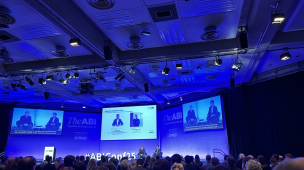Pricing Fairness – A catalyst for personal lines brokers to become MGAs?
4 June, 2021 Paul De'Ath
Our Market Intelligence Flavour of the Month highlights notable market trends, keeping you up to date on the industry’s “flavour of the month”.
This month we discuss Pricing Fairness – A catalyst for personal lines brokers to become MGAs? There is often a fine line between when a broker becomes an MGA and we have heard that GI retail brokers are looking to move across that line this year in response to the FCA pricing fairness regulations. Subscribe to UK Market Intelligence to receive this insight straight to your inbox.
Why are they doing this?
While the impact of renewal pricing equalisation is likely to be a significant issue for insurers with long-tenured back books, retail brokers face challenges of their own.
For many brokers, the ability to sell ancillary products to customers as part of the insurance buying process is a key part of their revenues. These additional services also come under the remit of pricing fairness and as such should offer the customers fair value. Brokers are aware that the FCA will crack down on products that do not offer fair value and will insist that brokers reduce the amount that can be charged or ban the sale of some of them all together.
Commissions are still an important source of income for brokers in the UK GI market. There is a chance that the FCA pricing regulations reduces switching in Home and Motor. If this is the case then brokers in this sector may also see a fall in commission revenue as it becomes harder to acquire customers currently distributed to via alternative channels, in addition to a fall in ancillary product revenue. Faced with this dual threat to revenues, brokers desire to set up MGAs could be interpreted in one of three ways:
1. Shift from price to value focus
Brokers agree with the market consensus that average GI premiums are going to rise due to the new regulations, and that as a result market share will be driven less by price and more by quality of service and strength of brand. Brokers may believe that in this new environment where price competitiveness is less critical, their data, MI and existing customer relationships provide them with the opportunity to create and distribute differentiated products and services. The carriers who provide capacity to these new MGAs should then also benefit from this competitive advantage delivered by the MGA resulting in a mutually beneficial outcome for both parties.
2. Product design ownership
Brokers are concerned about the loss of revenue, particularly from the sale of ancillary products, and believe transitioning to be an MGA will enable them to mitigate the impact of new regulations. Becoming an MGA would allow brokers more freedom over product design. They could then develop tiered insurance products with varying levels of ancillary services included within the core product – similar to products already offered by insurers such as Direct Line. Having this increased control over product design will allow brokers to tailor products more effectively, increasing customer’s propensity to make a purchase and delivering increased revenues.
3. Profit optimisation
Brokers in the UK GI sector are making the transition to MGA to capture a greater share of the value chain. Brokers see an opportunity to access a share of the underwriting profits by becoming an MGA to cover the shortfall in revenues caused by the factors identified earlier.
Initial discussions around the market have suggested to us that a combination of 2 & 3 is the most likely situation. If brokers feel like they can deliver truly differentiated products to customers by becoming an MGA then it is not clear why the FCA pricing regulations would act as a market-wide catalyst for these transitions. In reality, only select brokers have the prerequisite skills to create a differentiated proposition by becoming an MGA. We believe it is much more likely that brokers see becoming an MGA as an opportunity to protect their revenues in the face of regulatory pressure.
How should insurers respond?
The question for insurers is whether to provide capacity to brokers in their new ventures.
On the basis that these MGAs appear to be being set up to protect income in the face of the regulatory changes, the decision on whether to back them depends on a number of strategic questions:
1. Is the broker moving to be an MGA purely to ‘navigate’ the rules?
2. Is the MGA providing a genuinely differentiated offering to a niche segment?
3. Can you, as an insurer, afford to lose access to the broker distributed segment of the market?
As there are three potential motivations behind the transition, as well as several strategic assessments that need to be conducted, there is unlikely to be a ‘one size fits all’ approach that guarantees success for insurers. The position for insurers could also be influenced by whether the new MGAs are looking for a single capacity provider or using a panel as a single provider relationship is a much more binary choice in terms of maintaining or losing volumes. However, we believe that many insurers do not have sufficient direct distribution presence to abandon the broker channel entirely, and therefore will have to provide support to their key brokers in this market who make the transition to MGA.
If you would like to discuss this or other market trends in more detail please contact our Market Intelligence team.




